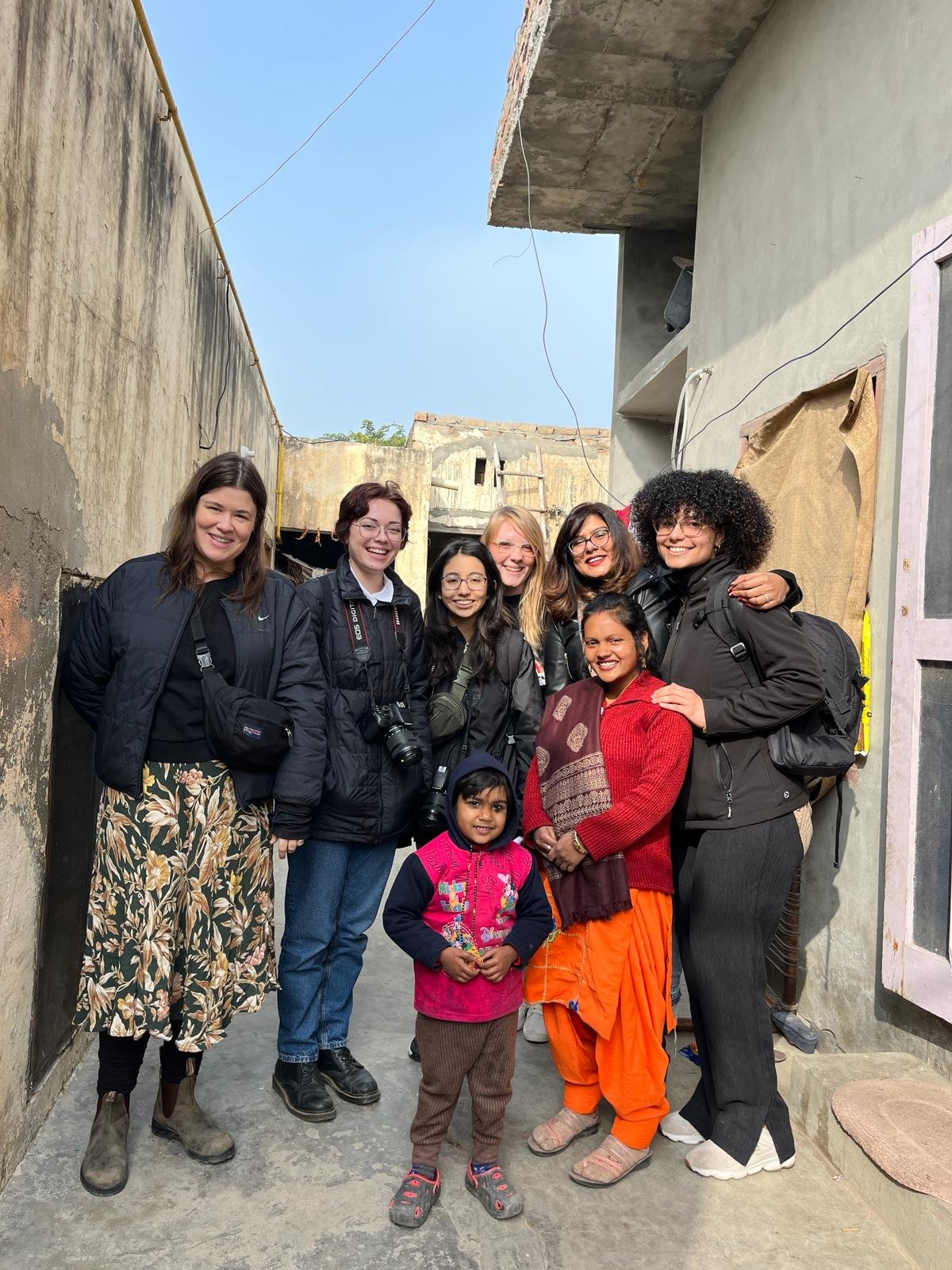With women in India
By Talia McWright
Ritu, and Anjali sat in their bedroom quietly as their henna artists were hard at work, preparing them for their wedding. Neither of them expressed excitement. Instead they were worried, and nervous. Even though they’d share their wedding day, the sisters weren’t close and could not find comfort in each other. They couldn’t celebrate with the excitement of their family, because an arranged marriage meant the outcome of their future was out of their own hands.
India is alive like no other country. Its crowded, narrow streets lined with welcomed invites to drink chai, purchase colorful textile and dance to the beat of a drummer, are of the simplest things one might see. Behind every person in India is a unique story, and its women are some of the most inspiring people I’ve ever met.
Marriages in India are often arranged, especially in smaller areas like Haryana. Arranged marriages do not imply love, nor consent. However, it is not impossible for people to fall in love, or be in healthy relationships. Yet, with the strongly rooted culture of gender inequality against women in India, many wives of arranged marriages often have similar stories of hardship.
If a woman wants to pursue an education, but is set to be married in a month, she might not ever be able to do so again. If she marries a man who is unkind to her, and beats her, she might not ever be able to defend herself. She might not even leave the marriage, out of fear that her circumstances will become worse. It is a painful reality to visierally experience. After visiting India, I have never been more grateful for the opportunities I have in the US as a woman; and yet, never before wanted to be more of a feminist. Despite these discrepancies, women in India are beyond resilient.
The women in India work hard. Harder than I’ve ever had to, I’m sure. If necessary, they’ll carry pounds of grass, larger than their own bodies to feed water buffalo for miles without complaint. They’ll henna the hands of brides while pregnant, ignoring their cramping hand if it means sending their future child to school. They’ll sacrifice their dreams to provide for their families.
I don’t know this kind of sacrifice. If I fail in my privileged effort of following my dreams, the people around me will support my attempt. If I chose to drop out of school, it likely won’t be because of marriage, but simply because my goals changed. I have so much respect and admiration for each of these women. I hope that as I age and mature, I might begin to possess some of the self-sacrificing qualities I’ve seen in these women.
It is beyond emotionally taxing to write stories about people you won’t see again in a few weeks. Stories about people, you may never get to see again. Examining the intimate details of their lives. Things they might even be sharing for the first time, openly to be read by the public. It can feel like a one sided transaction, even though they are more than willing to share, excited even.
If I could have stayed longer, I would have. I would have attended Ritu and Anjali’s wedding, worked on the farm with Dhanno’s family, met Suneeta’s friends, and so much more. The women I had the privilege to write about, are worth much more than a month of my time. To all the women who let me paint a glimpse of their story in Textura, thank you a million times. Thank you to everyone in Haryana, Kaithal, and Delhi, who opened their doors to me and my team, treating us like family.

